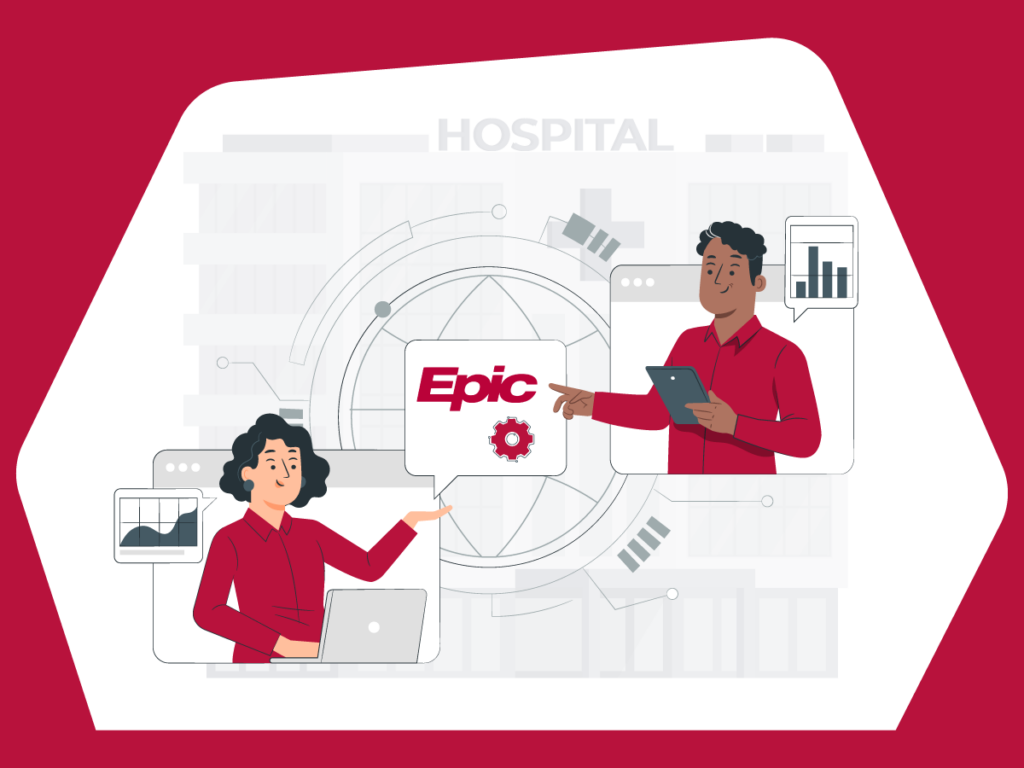
The Shift to Epic Systems: Addressing the Challenges and How Itirra Can Help
The healthcare landscape is undergoing a significant transformation as 27 health systems have recently announced plans to transition to Epic Systems, one of the leading providers of electronic health record (EHR) solutions. Epic is known for its comprehensive platform, which integrates patient records, clinical workflows, billing systems, and more. While the benefits of Epic are clear—improved patient care, streamlined workflows, and better data analytics—the transition process is far from simple. Physician advisors, revenue cycle management (RCM) companies, and service providers working within these health systems face a range of technical challenges that require specialized expertise and careful planning to navigate successfully.
For physician advisors, the shift to Epic means adapting to a new set of tools for managing clinical workflows and patient data. Physician advisors are responsible for ensuring that clinical documentation is accurate and that coding practices comply with regulatory standards. With Epic’s robust yet complex system, adapting to its interface and functionalities can be daunting. Physicians and their advisors will need to learn how to document and retrieve information from the new system efficiently while ensuring that all patient data is transferred correctly. Furthermore, the integration of Epic with other systems and workflows must be seamless to avoid disruptions in patient care, which can be a significant challenge when migrating from legacy systems that may have different data structures and standards.
Revenue cycle management companies face even greater challenges during this transition. RCM involves managing billing, coding, and reimbursement, which requires precise coordination between clinical and financial data. Epic’s platform offers advanced tools for billing and coding, but RCM companies must reconfigure their processes to align with Epic’s new workflow. This includes updating billing systems, ensuring that codes are accurate, and training staff to use Epic’s system effectively. Any misalignment between clinical documentation and billing information can lead to coding errors, delayed claims, and missed revenue opportunities. Moreover, RCM teams must ensure that the transition does not disrupt cash flow or cause delays in reimbursement, making the need for a well-planned migration strategy even more critical.
Service providers working with these health systems, including IT consultants, data integrators, and health information management (HIM) professionals, also face significant hurdles. Epic’s proprietary nature means that third-party vendors must ensure compatibility between Epic and other systems, such as legacy databases or specialized healthcare applications. For example, service providers may need to develop custom integrations or work on data migration from disparate systems to Epic. They must also address technical concerns related to data security, especially when dealing with Protected Health Information (PHI). As service providers help facilitate this transition, they must ensure that Epic’s systems can be integrated smoothly into existing infrastructure without compromising patient privacy or compliance with regulations like HIPAA.
This is where Itirra, a Washington-based health tech lab with over a decade of successful experience, comes in. Itirra specializes in designing, developing, and deploying bespoke EHR integration solutions. Their expertise is particularly valuable for organizations transitioning to Epic Systems, as Itirra has extensive experience working with Epic and handling complex data integration tasks. Whether it’s ensuring that Epic integrates with other technologies, developing custom APIs, or facilitating data migration, Itirra is well-equipped to manage the technical complexities of these transitions. Their tailored solutions empower their clients to extract, manage, and utilize data in a secure and efficient manner, ensuring that the migration to Epic is as smooth as possible.
One of the primary services that Itirra provides is assisting organizations with extracting Protected Health Information (PHI) from Epic’s platform. PHI extraction is a critical part of the transition process, as organizations need to ensure that sensitive patient data is migrated securely and in compliance with regulatory standards. Itirra’s team is highly experienced in working with Epic’s APIs and data structures, which enables them to help healthcare providers extract and manage PHI while minimizing the risk of data breaches or non-compliance. By leveraging their knowledge of Epic’s system and regulatory frameworks, Itirra ensures that its clients can maintain full access to critical patient data, even during a complex system transition.
In conclusion, while the transition to Epic Systems offers long-term benefits for healthcare organizations, it presents significant technical challenges for physician advisors, RCM companies, and service providers. The complexities of system integration, data migration, and PHI extraction require specialized expertise to avoid disruptions in patient care, billing processes, and compliance. Itirra’s decade of experience in EHR integration makes it an invaluable partner for organizations moving to Epic, providing tailored solutions that streamline the transition process. From ensuring secure and efficient data extraction to offering full technical support, Itirra helps health systems navigate the transition to Epic with confidence, ensuring that they can continue to deliver high-quality care while maximizing operational efficiency.
Contact Itirra today to learn more!

